Search
Remove Ads
Advertisement
Summary 
Loading AI-generated summary based on World History Encyclopedia articles ...
Search Results
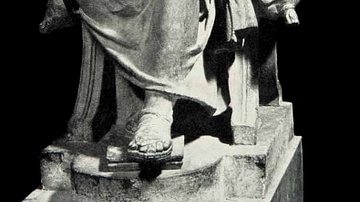
Definition
Marcus Claudius Marcellus
Marcus Claudius Marcellus (c. 270-208 BCE) was a five-time consul and, earning the nickname the 'Sword of Rome', he was one of the city's greatest military commanders. Active in both the First and Second Punic Wars, he also won honours for...

Image
Marcus Claudius Marcellus
A Roman period statue of Marcus Claudius Marcellus, general and five-time consul (c. 270-208 BCE). Capitoline Museums, Rome.

Definition
Claudius
Claudius was Roman emperor from 41 to 54 CE. After the death of Emperor Caligula (37-41 CE) and his family at the hands of the Praetorian Guard, the future Emperor Claudius was found quivering behind a set of curtains, fearing for his own...

Definition
Valeria Messalina
She was about 15 and beautiful, while he was over 50 and the future emperor of the Roman Empire. In 38 CE (dates vary) Tiberius Claudius Caesar Augustus —known to history as Claudius— married his second cousin, Valeria Messalina. This was...
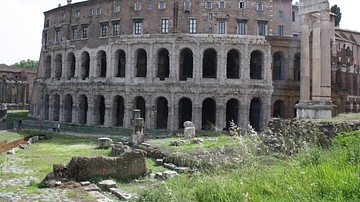
Article
Theatre of Marcellus
The theatre of Marcellus was the largest and most important theatre in Rome and completed in the late 1st century BCE during the reign of Augustus. The architecture of the theatre would become a standard feature of theatres across the empire...
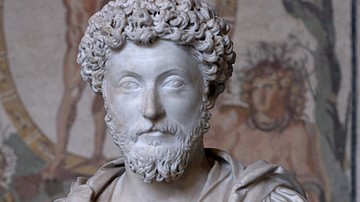
Article
Marcus Aurelius: Philosopher Emperor or Philosopher-King?
Co-authored by Steven Umbrello and Tina Forsee It is very common to hear in both academic circles, as well as more close-knit Stoic circles, Marcus Aurelius (121 – 180 CE) being referred to as the philosopher king. This is not an idea...
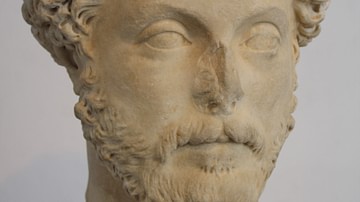
Definition
Marcus Aurelius
Marcus Aurelius (r. 161 to 180 CE) was a Roman emperor best known as the last of the Five Good Emperors of Rome (following Nerva, Trajan, Hadrian, and Antoninus Pius) and as the author of the philosophical work Meditations. Although it has...
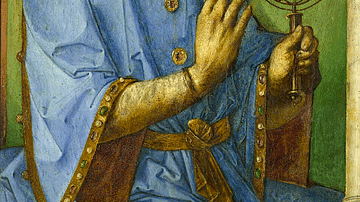
Definition
Claudius Ptolemy
Claudius Ptolemy (c. 100 to c. 170 CE) was an Alexandrian mathematician, astronomer, and geographer. His works survived antiquity and the Middle Ages intact, and his theories, particularly on a geocentric model of the universe with planets...

Definition
Agrippina the Younger
Julia Agrippina or Agrippina the Younger (6 November 15 - 19/23 March 59 CE) was a prominent woman during the early Roman Empire, niece to Tiberius (r. 14-37 CE) and Claudius (41-54 CE), whom she married, sister of Caligula (r. 37-41 CE...
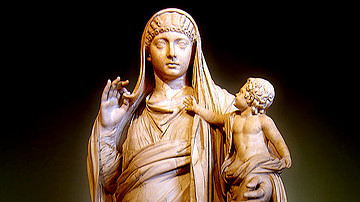
Definition
Britannicus
Britannicus (41-55 CE) was the second child and only son born to the Roman emperor Claudius (r. 41-54 CE) and Valeria Messalina (c. 20-48 CE). Seen as a threat by Claudius' fourth wife, Agrippina the Younger (15-59 CE), and her son, the future...